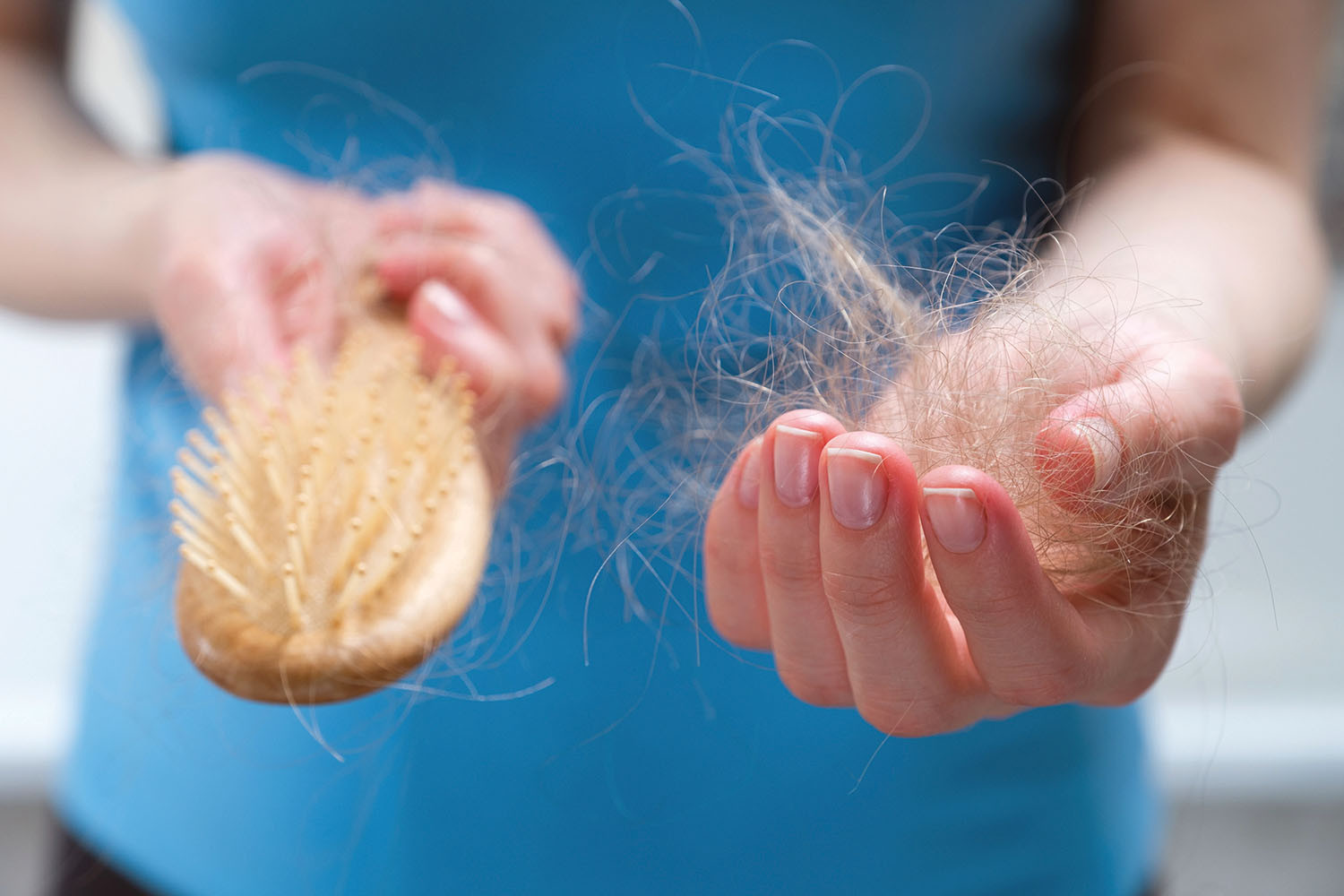
How — and why — to fit more fiber and fermented food into your meals

UTI in older women: Why postmenopausal women are susceptible to urinary tract infection, and what to do about it

Can a routine vaccine prevent dementia?

Some adults may need a measles booster shot. Who should get one and why?

Less butter, more plant oils, longer life?

Healthier planet, healthier people

Counting steps is good — is combining steps and heart rate better?

Appendix pain: Could it be appendicitis?

Can saw palmetto treat an enlarged prostate?

How does Ozempic work? Understanding GLP-1s for diabetes, weight loss, and beyond
Skin and Hair Archive
Articles
It's not too late to save thinning hair
Treatment for hair loss depends on the type of hair loss a person is experiencing. Sudden hair loss often gets better on its own once an underlying condition is treated. Gradual hair thinning caused by aging or genetics may stop or start to reverse with topical medications, oral medications, supplements, laser light treatments, or injections of platelet-rich plasma. And for any of these approaches, the key is starting them as soon as hair loss is detected. Once hair follicles stop working, the only option to restore hair is hair transplant surgery.
Eating disorders in midlife
By age 40, one in five women has dealt with an eating disorder, twice the proportion of women known to be affected by age 21. Risks for anorexia, bulimia, and binge eating can rise at midlife due to job stressors, an empty nest, and dating again after divorce or widowhood. Health effects can include bone loss, heart problems, lung conditions, gastrointestinal issues, diabetes, and skin breakdown. Signs of an eating disorder include dramatic weight fluctuations, excessive exercising, and preoccupation with weight, calories, and body size and shape.
More fallout from COVID-19
Hair loss is common in the months after recovering from COVID-19 infection. It can also happen in people with long COVID or because of mental stress from the pandemic. COVID-related hair loss is a form of telogen effluvium, a condition in which normal hair shedding ramps up after intense physical or mental trauma. Hair regrowth usually takes six to 12 months. People can speed and support hair regrowth by avoiding harsh hair habits, checking nutrient levels, and applying minoxidil (Rogaine) to the scalp.
Harvard Health Ad Watch: A new injection treatment for eczema
Existing treatments for a type of eczema called atopic dermatitis include creams and ointments, some containing steroids. An ad for a new injected medication pitches its skin-clearing capability, but that isn't the whole story.
Beyond hot flashes
Around menopause, a decline in estrogen can trigger low-grade inflammation that leads to unexpected symptoms from head to toe. Symptoms can affect the digestive tract, skin, joints, eyes, ears, and heart, among other areas. A 2022 study found that estrogen loss can even fuel the jaw pain known as temporomandibular disorder. A year or longer can pass before many women connect symptoms with menopause. Women can take lifestyle measures to lower inflammation, such as eating more fruits and vegetables, avoiding processed foods, and exercising.
Poison ivy: Scratchin' like a hound?
Misconceptions about poison ivy are common — from when you can get it to how you might get it, and the best ways to treat it. Knowing the facts can help you avoid it, or treat it properly if you are exposed to it.
Monkeypox: An unfamiliar virus spreading fast — sound familiar?
More than two years after COVID-19 reached the US, an outbreak of monkeypox is spreading fast outside of Africa. This virus is not new, and it's likely to be less dangerous than COVID, but it's still important to be aware of its symptoms, spread, treatment, and prevention.
Melasma: What are the best treatments?
Melasma is a skin condition affecting mostly women with darker skin. It cannot be fully prevented in those most likely to develop it, and there is no cure, but consistent sunscreen use is critical, and numerous treatment options are available.
Recognizing and preventing sun allergies
There are several types of "sun allergies," including polymorphous light eruption (PMLE), hives, and photoallergic reactions. Learn about these different reactions to sun exposure, as well as prevention and treatment.
You don't say? Does that tickle?
Ticklishness falls into two categories: gargalesis (which produces laughter and squirming) and knismesis (the sensation of a feather brushing over the skin, also known as light-touch tickling). It is not clear why some people are ticklish, but it may be a bonding or protective reaction.

How — and why — to fit more fiber and fermented food into your meals

UTI in older women: Why postmenopausal women are susceptible to urinary tract infection, and what to do about it

Can a routine vaccine prevent dementia?

Some adults may need a measles booster shot. Who should get one and why?

Less butter, more plant oils, longer life?

Healthier planet, healthier people

Counting steps is good — is combining steps and heart rate better?

Appendix pain: Could it be appendicitis?

Can saw palmetto treat an enlarged prostate?

How does Ozempic work? Understanding GLP-1s for diabetes, weight loss, and beyond
Free Healthbeat Signup
Get the latest in health news delivered to your inbox!
Sign Up











